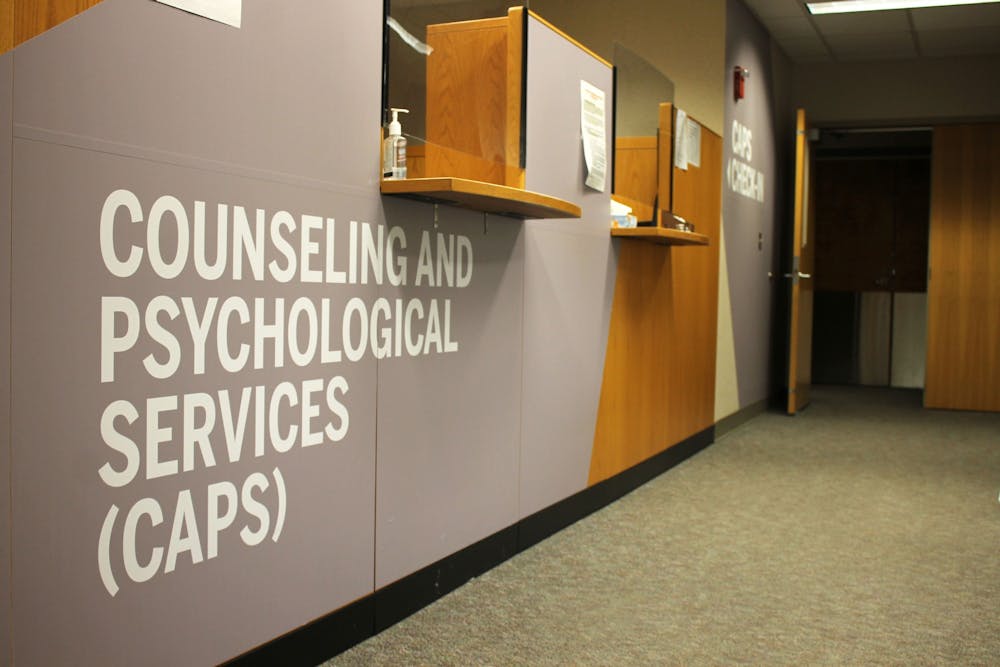Junior Sophia Salesky stood beside the Showalter fountain, about to enter the theater building March 10, 2020. Her phone was sweaty in her palm as she read the message being sent out to all students.
“Urgent message from President Michael A. McRobbie: COVID-19,” the email read.
The dread and denial set in as she thought of the play she was starring in, The Servant of Two Masters, being canceled.
On the other side of campus, senior Jessie Bittner’s thumb swiped across her phone screen, refreshing the email again and again. Around her, the loneliness of her single dorm room sunk in, foreshadowing the isolation the next year would bring.
McRobbie’s message said IU students were to be sent home for two weeks following spring break. What was meant to be an extended break morphed into two and a half grueling semesters with mostly online classes.
Now, students are moving forward toward the end of the COVID-19 pandemic, with hopes for in-person classes and a return to normalcy soon. With the end of restrictions on the horizon, the mental health issues this pandemic caused for students cannot be ignored.
“I don’t think I have ever been more burnout, both academically and in my life as a whole,” Bittner said in an email. “Right now, I’m taking it one day at a time, one assignment at a time.”
Bittner and Salesky, like many students, said they have felt the effects the pandemic has had on their mental health — it hasn’t stopped since returning to IU last August.
“My mental health has plummeted unlike I had ever imagined,” Salesky said. “Everything started to feel useless, and the work kept piling on, and I wasn’t able to enjoy the things I loved about school like I had when I was in person.”
Over a full year has passed since students across the country were sent home by their respective colleges. Since then, students have been forced to work through and overcome preexisting and new mental health issues caused by the pandemic.
Countless IU students have been forced to watch their friends battle mental health issues this past year, all while simultaneously dealing with their own mental health with no real end in sight.
Related: [A list of mental health, addiction, abuse resources to access from home]
“As the year has gone on, I’ve been struggling more and more,” Salesky said. “Being online for three semesters now has really shot my motivation unlike I have ever experienced.”
The toll the pandemic has taken on Salesky and Bittner’s mental health is heartbreaking, and it’s not a unique story.
In May 2020, the Washington Post reported that the COVID-19 pandemic had caused a mental health crisis in the U.S., stating that isolation was spiraling into anxiety and depression upticks. As IU students roll into the end of the school year, and hopefully the end of the COVID-19 pandemic, it becomes apparent that the university hasn’t done enough to help.
Counseling and Psychological Services, which is underfunded and overbooked, can’t adequately meet the mental health needs the pandemic has faced students with. Many students, such as Bittner, find CAPS to be inaccessible to students in need.
“I needed help immediately and ended up reaching out to other therapy resources,” Bittner said. “Unfortunately, telling a student that they cannot be seen for two months might be too late for a student to stay afloat.”
Other students, such as Salesky have heard stories like Bittner’s and avoided the service all together.
“I have never heard anything good about them, so why bother?” Salesky said.
IU Director of Media Relations Chuck Carney explained in an email that during the pandemic CAPS has switched to phone and video services to accommodate COVID-19 guidelines.
“The only reason a student would have an extended wait time is if they wanted to meet with someone specifically and the student had limited availability,” Carney said.
Pandemic affiliated resources created by CAPS have been listed on the student health center website.
The wellness days provided once a month, except for January and May, are far from the break students need. Instead of the intended break, students find themselves left with the work that would normally be done during the wellness days, with or without class. The stress the wellness days aim to fix is not reduced, leading students to yearn for the spring break their mental well-being so desperately needed.
With the mental health issues the last year and a half has brought upon students, any light at the end of the tunnel is a good sign. For some, it’s getting back to seeing people in person, for others, it’s classes ending and vaccine appointments.
“Now that everyone is getting vaccinated and we are moving back to in-person classes, it feels like things are looking up,” Salesky said.
If you or someone you know is struggling, help is available. Call the National Suicide Prevention Lifeline at: 800-273-8255 or Text IN to 741741 for suicide prevention. IU Crisis line: 812-855-5711.
Curren Gauss (she/her) is a sophomore majoring in theater and English. She is currently a member of the Queer Student Union.




